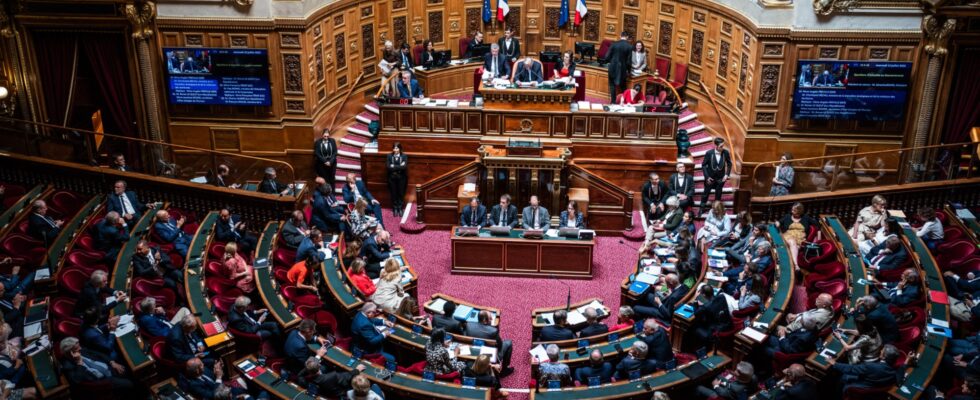The executive is holding its breath before the examination Thursday in the Senate of the Ceta free trade treaty between the European Union and Canada: a left-right alliance of circumstance, in the middle of the European campaign, endangers the ratification process of this decried agreement. Business leaders, the Canadian embassy, agricultural unions, the government… Requests from lobbies of all stripes have rained into senators’ mailboxes in recent days, as confirmed by a senatorial right-wing executive.
Because the debate goes far beyond the walls of the Palais du Luxembourg, where the 348 senators are called to validate the ratification of Ceta on Thursday March 21. Provisionally applied since 2017 and its adoption in the European Parliament, the free trade agreement has never been submitted to the French upper house, a necessary step on the path to ratification.
However, the presidential camp, already in difficulty during the passage of the treaty in the National Assembly in 2019 – it was narrowly adopted there with many abstentions in the Macronist ranks – is in a very minority in the Senate. “Democracy is not playing when you win and not playing when you are sure to lose”, invectives the communist senator Fabien Gay, who promises “a political thunderbolt” in the face of a government which “considers Parliament like a doormat.
“An instrumentalization in the middle of the European countryside”
The communist group is in fact at the origin of this extremely rare poker move in Parliament: it decided to include in its parliamentary time – its “niche” – not one of its proposals, but indeed this bill of the government, with the firm intention of seeing it rejected. The Republicans, the leading political force in the High Assembly, seem just as determined to oppose it. “We need free trade agreements, but certainly not at the expense of our sovereignty, particularly food sovereignty,” says the head of senators LR Bruno Retailleau.
Faced with the risk of rejection, the government is trying to make itself heard. “We must not be naive. This is an exploitation in the middle of the European campaign,” said Minister Delegate for Foreign Trade Franck Riester on Monday, on BFM Business. A rejection by the Senate would be far from trivial: in fact, the fate of the text could be identical on second reading in the National Assembly where the presidential camp does not have an absolute majority.
However, if a national Parliament rejects the treaty, this calls into question its provisional application across Europe, provided however that the French government notifies Brussels of the decision of its Parliament, which it does not is not required to do. Currently, ten member states have not completed the ratification process and only one has rejected it: Cyprus. But the Cypriot government never notified this rejection, which allows the agreement to continue to apply.
Exports on the rise
If the government still remains silent on its potential intentions in the event of opposition from the Senate, it takes the matter very seriously: “We must be careful not to send a negative message on an agreement which produces beneficial effects”, slips – we say from a government source. The executive relies in particular on the figures for exports to Canada, up 33% between 2017 and 2023 to 4.2 billion euros (compared to 35% increase in imports), and on the trade surplus of the French agricultural and agri-food sectors, multiplied by three over this period. The wine and dairy sectors are notably cited among the big winners of Ceta.
“The Republicans are going to vote as one with the communists and the ecologists… It’s a shame. It’s crazy,” says Horizons senator Vincent Louault. “Agriculture in central Canada is purely industrial and frees itself from all the rules. These are two opposing worlds that clash,” retorts Senator LR Laurent Duplomb, a professional farmer who intends to send a “warning shot ” in Brussels.
The executive nevertheless finds some support within the centrist group chaired by Hervé Marseille (UDI): the latter tabled a motion to refer it to committee to postpone examination of the text. But there is no guarantee that it will be adopted.
